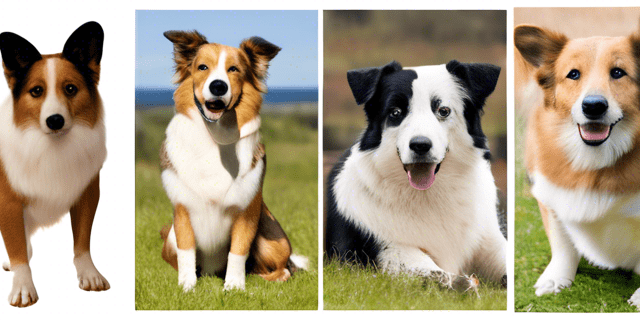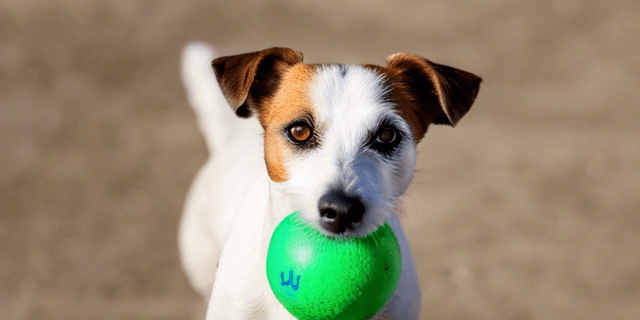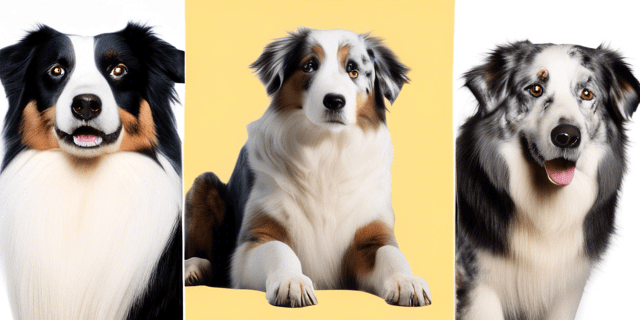Introduction
Have you ever questioned why dogs are referred to as the best friend of man? This bond is more than friendship when it comes to farmers – dogs are vital companions that enhance farming productivity and security. The selection of an appropriate dog breed for your agricultural activities is not only necessary but also important. Therefore, this guide will explain the eleven best dog breeds for farming, the type of farming they should do, and how we should care for them. Are you set to discover the best four-legged assist for your farm? Let’s get started!
Table of Contents
Importance of Farm Dogs
Historical Role of Dogs in Farming
Dogs have been helping humans for centuries. From ancient times, they were bred for tasks like protecting livestock, hunting, and herding. Their sharp senses, loyalty, and intelligence made them indispensable partners for farmers. Dogs still serve these roles today, though the breeds and tasks may vary.
Key Functions of Farm Dogs
Farm dogs are multi-talented. They can herd livestock, guard property, and even help control pests. Herding dogs guide animals precisely, reducing the risk of injury and loss. Guardian dogs protect livestock from predators, while terriers keep the farm free from rodents and other pests. Each breed brings its unique skills to the farm setting.
Benefits of Having a Farm Dog
Why should you consider having a farm dog? The benefits are manifold:
- Improved Farm Efficiency: A well-trained dog can save you time and effort.
- Security: Guard dogs offer protection against intruders and predators.
- Companionship: Dogs are loyal friends who provide emotional support.
- Pest Control: Terrier breeds excel at keeping the farm rodent-free.
Top 10 Best Farm Dog Breeds
1.Border Collie
Physical Characteristics
Border Collies are also medium-sized dogs with strong body muscles. They have a double coat, which is usually smooth or rough.
Herding Capabilities and Intelligence
Known for their incredible herding skills, Border Collies are often seen guiding sheep with uncanny precision. Their high intelligence makes them quick learners.
Temperament and Energy Levels
These canines are full of energy and require a lot of exercise for their bodies and brains. They are loving but can be shy or withdrawn in front of unfamiliar people.
2.Australian Shepherd
Physical Characteristics
Aussies are medium-sized dogs with a thick, water-resistant coat. Their eyes can be blue, brown, or even one of each!
Herding Style and Versatility
Australian Shepherds excel in herding livestock. They are versatile and can adapt to various farm tasks.
Socialization Needs
Aussies are social animals that enjoy human interaction. They need early socialization to behave well around other animals and people.
3.Great Pyrenees
Physical Characteristics
Great Pyrenees dogs are known for their large size and fluffy fur, which, combined with their thick double coat, provides protection against severe weather.
Livestock Guardian Qualities
These dogs are natural protectors. They are calm yet vigilant, making them excellent livestock guardians.
Affectionate Nature with Family
Despite their size, the Great Pyrenees are gentle giants. They are affectionate and good with children.

4.Anatolian Shepherd
Physical Characteristics
Anatolian Shepherds are large, powerful dogs with a short coat. They have a keen, watchful expression.
Protective Instincts and Resilience
These canines guard their herds with great tenacity. They are robust and can perform in numerous weather conditions.
Ideal Farm Environments
Anatolian Shepherds thrive in spacious environments where they can roam freely and guard livestock effectively.
5.Pembroke Welsh Corgi
Physical Characteristics
Corgis are small but sturdy dogs with short, weather-resistant coats.
Herding Abilities Despite Small Size
Don’t be fooled by their size—Corgis are excellent herders. They are agile and quick on their feet.
Popularity and Personality Traits
Corgis are popular farm dogs due to their friendly and outgoing nature. They are loyal and easy to train.
6.Australian Cattle Dog
Physical Characteristics
These medium-sized dogs have a robust build and a short, dense coat.
Herding Style and Loyalty
Endurance and loyalty are the main features of Australian Cattle Dogs, as they usually herd cattle over long distances.
Training Requirements
Dogs possess high levels of intelligence, and consistent training is required for them. Early socialization is essential to avoid behavioral problems.
7.Airedale Terrier
Physical Characteristics
Airedales are large terriers with a dense, wiry coat. They have a distinctive beard and eyebrows.
Vermin Control and Guarding Capabilities
Airedales are excellent at controlling vermin. They are also protective and can serve as guard dogs.
Versatile Farm Roles
These dogs are versatile and can handle various farm tasks, from guarding to hunting.
8.Dutch Shepherd
Physical Characteristics
Dutch Shepherds are medium-sized dogs with brindle coats. They are athletic and well-muscled.
Versatility in Farm Tasks
These dogs are highly versatile. They can herd, guard, and even perform search and rescue tasks.
Training and Temperament
Dutch Shepherds are intelligent and trainable. Their balanced temperament makes them suitable for various farm roles.

9.Jack Russell Terrier
Physical Characteristics
Jack Russells are small but energetic dogs with short, smooth coats.
Efficiency in Pest Control
These terriers are good at ratting. Their size allows them to reach places no other dog can fit.
Personality and Training Needs
Jack Russells are lively and require consistent training. They are affectionate but can be stubborn.
10.German Shepherd
Physical Characteristics
German Shepherds are large dogs with a double coat. They are well-known for their strong, athletic build.
Multipurpose Farm Roles
These dogs can perform various farm tasks, from herding to guarding. They are highly trainable and versatile.
Training and Socialization Importance
Training and socialization during puppyhood are very important to German Shepherds. They work best with rules and regularity.
Training Tips for Farm Dogs
Basic Obedience Training
Use basic commands such as “the seat,” “remain here,” and “approach me.” The secret of successful training lies in maintaining uniformity.
Specialized Farm Task Training
Train your dog for specific farm tasks, whether herding or guarding. Use positive reinforcement methods.
Socialization with Other Animals and Humans
Expose your dog to various animals and people. Socialization helps in developing a well-rounded farm dog.
Health and Care Tips
Regular Veterinary Check-ups
Routine check-ups are essential to maintain your dog’s health. Schedule visits to the vet at least once a year.
Nutrition for Active Farm Dogs
Provide a balanced diet rich in protein. Active farm dogs require more energy, so quality nutrition is crucial.
Grooming Needs
Regular grooming is necessary to keep your dog’s coat healthy. Brush regularly and trim nails to prevent issues.
Exercise Requirements
Daily exercise is a must for farm dogs. Engage them in fetching or herding to keep them physically and mentally stimulated.
Conclusion
Choosing the right farm dog breed can significantly improve your farming operations. From herding to guarding, these dogs offer invaluable support. Investing time in training and caring for your farm dog improves farm efficiency and builds a lifelong bond.
Please share your experiences with farm dogs and follow us for more tips and guides on making the most of your furry farmhands. Happy farming!
Frequently Asked Questions
What is the best breed for guarding livestock?
While every farm has different needs, breeds like the Great Pyrenees and Anatolian Shepherd are renowned for their guarding instincts. They are protective and vigilant, making them excellent choices for safeguarding your livestock.
How do I train my farm dog for specific tasks?
Commence with fundamental obedience schooling and then slowly advance to focused undertakings. Consistent, affirmative feedback and initial social interaction are essential to successful learning. Don’t be shy about hiring an expert when necessary.
Do farm dogs need special diets?
Active farm dogs require a balanced diet of protein and other essential nutrients to sustain their energy levels. Consult your veterinarian to determine your breed’s ideal diet and workload.
How often should I groom my farm dog?
Dog grooming is breed-specific to ensure a healthy coat, although brushing is advised often to eliminate dirt and extraneous fur. Furthermore, ticks and fleas must be checked, especially if the pet spends most of its time outdoors.
Can small dogs be effective on a farm?
Absolutely! Breeds like the Pembroke Welsh Corgi and Jack Russell Terrier, despite their smaller size, are excellent at herding and pest control. Their agility and energy make them valuable assets on any farm.
How important is socialization for farm dogs?
Socialization is crucial for farm dogs to behave well around people and other animals. Exposure to different environments, animals, and humans helps develop a well-rounded and well-behaved farm dog.
Sarah Smith is a passionate dog and cat enthusiast, blogger, and pet care expert. With years of experience researching and writing about various dog breeds cat breeds, she brings a wealth of knowledge and insight to her blog, PetPession.com. Sarah loves exploring the unique traits, histories, and care needs of different breeds, helping pet owners make informed decisions. Her mission is to create helpful, friendly, and well-researched content that both educates and celebrates the joy of pet ownership. When she’s not writing, Sarah enjoys outdoor adventures with her own furry friends.


2 thoughts on “Top 10 Best Farm Dog Breeds”